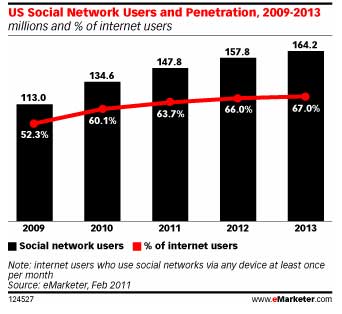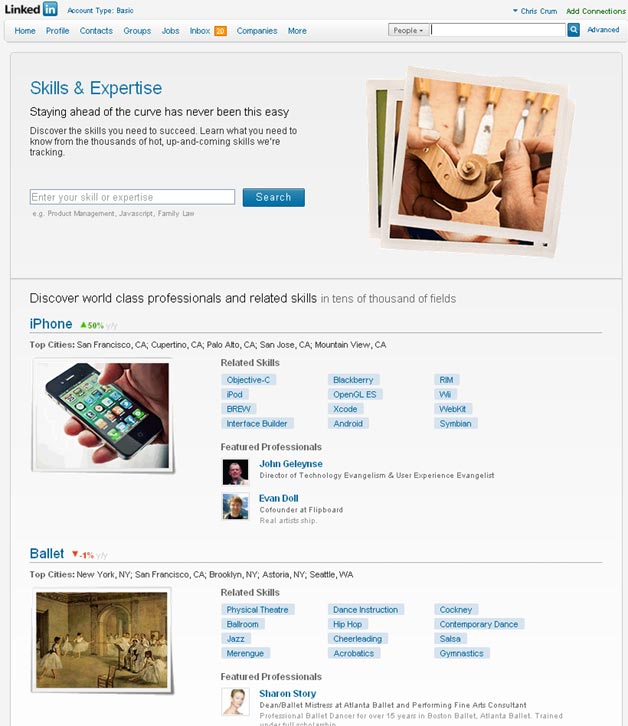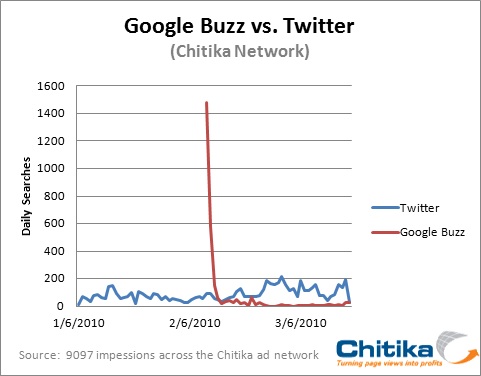As we reported last week, some significant news was announced regarding the open web, and the direction social networking is headed in. Cliqset and Status.net announced that for the first time ever, the users of two independent, public web entities are able to communicate with each other, without being on the same service as the person they are communicating with. These two services accomplished this using the Salmon protocol, a technology that’s already on Google’s list to implement with Buzz.
Would you find value in communicating with a user of a social network you didn’t belong to? Tell us what you think.
I reached out to Google’s own open web advocate, Chris Messina, to get his thoughts on this milestone and its significance for social networking, and for businesses.
What’s it Mean for Social Networking?
"I do think that Salmon is a very important building block technology for the open, social web," Messina tells WebProNews. "It basically provides a mechanism for what I would call ‘personal trackbacks’ or ‘social pingbacks’ — to borrow the blogging term."
 Imagine: If Facebook, Twitter, Google Buzz, and MySpace all implemented Salmon in the way that Cliqset and Status.net have. Users of any one of these services could communicate with users on any of the others without having to be part of those other communities. For example, if I’m a Facebook user, but not a Twitter user, I could respond to a tweet from somebody from my Facebook account, which they would see on Twitter. All the while, I do not have a Twitter account. They could then in turn respond to me, and I would see that in my Facebook account.
Imagine: If Facebook, Twitter, Google Buzz, and MySpace all implemented Salmon in the way that Cliqset and Status.net have. Users of any one of these services could communicate with users on any of the others without having to be part of those other communities. For example, if I’m a Facebook user, but not a Twitter user, I could respond to a tweet from somebody from my Facebook account, which they would see on Twitter. All the while, I do not have a Twitter account. They could then in turn respond to me, and I would see that in my Facebook account.
Right now, social network users can’t do this, unless they’re using Cliqset and Status.net, but depending on how widely this gets adopted, it could become more of a standard in the future, which would make for increased competition in the social network space. People wouldn’t necessarily have to join Facebook just to stay in touch with all of their friends and family who use it. If they liked MySpace better, for example, they could continue using that as their preferred social network, and still communicate with anybody else. As Marshall Kirkpatrick recently suggested, this would mean social networks would have to strive to innovate more, to keep users from simply moving elsewhere.
"This is a great demonstration of Cliqset’s larger vision of social networks being siteless, and we think it’s going to be the future of how all services interact and, more importantly, how users of these services interact," Cliqset told us earlier.
 "With the ability to mention someone on one service and then send a verified ping to the recipient’s service, we get one step closer to decentralizing social networks in the same way that email was decentralized a decade or longer ago," Messina says. "For today, this means that if you prefer to use Cliqset, and I use Status.net — but I want to talk to you without signing up for Cliqset — Salmon will make that possible!" (emphasis added)
"With the ability to mention someone on one service and then send a verified ping to the recipient’s service, we get one step closer to decentralizing social networks in the same way that email was decentralized a decade or longer ago," Messina says. "For today, this means that if you prefer to use Cliqset, and I use Status.net — but I want to talk to you without signing up for Cliqset — Salmon will make that possible!" (emphasis added)
"Put another way, let’s say that I post a photo to both Flickr and my blog, and let’s presume that I would like to have one unified set of comments for that object — rather than two distinct streams of comments," Messina adds. "Salmon provides the mechanism to sync those two channels so that, once again, Flickr users can use Flickr, and my blog readers can read my blog."
What Impact Could This Have for Businesses?
Social networking has become a significant part of marketing, customer service, branding, and engaging with customers. It only makes sense that if social networking were to become more open in the way that widespread Salmon adoption would allow, business communication channels could open up along with them. Communication would improve.
"The benefits for business become clear then: produce quality content, syndicate to any number of services or aggregators, and then use Salmon as a way to host distributed conversations across the web — rather than in several disconnected contexts," says Messina. "This means more engagement and higher convenience for publishers — and a more familiar experience for content consumers."
What are the odds?
A lot still has to happen for social networking in general to reach this point. Right now, we’re really only at the beginning. Cliqset and Status.net are hardly representative of social media as a whole. However, Google Buzz, while certainly not as dominant as say, Facebook, will be implementing Salmon sooner or later, and you can bet others will follow. Kirkpatrick made the point that because Salmon is open source, any service can implement it without formal business relationships.
"If a substantial portion of the technical community implements Salmon, Facebook could be under a lot of pressure to do so as well. (As it was with OpenID, for example)," he says.
Facebook’s best interest, however, is to keep users using Facebook itself. Considering Facebook already has such a significant share of the population, you have to wonder how much it would really lose if it adopted this. It may also be in Facebook’s best interest to keep users happy, and that could potentially include tearing down a wall for users who don’t want to be closed off from the rest of the world.
Time will tell if this all comes to fruition, but Cliqset and status.net have shown that it can be done, and that’s an important first step.
On the subject of social media getting more convenient for businesses, enterprise software company Salesforce.com made some significant announcements this week involving integrating social media more into the enterprise. Read about our discussion with the company about that here.
Would you like to see social networks open up to cross-communication? Share your thoughts here.








 Usage of social networks has increased 20 percent from the first quarter of 2009. Facebook remains the leader, growing 33% over the past year. Facebook has also been a boost for casual gaming, surpassing Yahoo as the most visited gaming site among casual gamers – 28 percent in the past month have played a game on Facebook (versus 21 percent for Yahoo).
Usage of social networks has increased 20 percent from the first quarter of 2009. Facebook remains the leader, growing 33% over the past year. Facebook has also been a boost for casual gaming, surpassing Yahoo as the most visited gaming site among casual gamers – 28 percent in the past month have played a game on Facebook (versus 21 percent for Yahoo).

 Imagine: If Facebook, Twitter, Google Buzz, and MySpace all implemented Salmon in the way that Cliqset and Status.net have. Users of any one of these services could communicate with users on any of the others without having to be part of those other communities. For example, if I’m a Facebook user, but not a Twitter user, I could respond to a tweet from somebody from my Facebook account, which they would see on Twitter. All the while, I do not have a Twitter account. They could then in turn respond to me, and I would see that in my Facebook account.
Imagine: If Facebook, Twitter, Google Buzz, and MySpace all implemented Salmon in the way that Cliqset and Status.net have. Users of any one of these services could communicate with users on any of the others without having to be part of those other communities. For example, if I’m a Facebook user, but not a Twitter user, I could respond to a tweet from somebody from my Facebook account, which they would see on Twitter. All the while, I do not have a Twitter account. They could then in turn respond to me, and I would see that in my Facebook account. 


 66% of all government agencies currently use some form of social networking – from blogs and wikis to instant messaging and discussion boards, according to the study. 31% of those surveyed have embraced social media as a means of providing a more efficient customer feedback channel.
66% of all government agencies currently use some form of social networking – from blogs and wikis to instant messaging and discussion boards, according to the study. 31% of those surveyed have embraced social media as a means of providing a more efficient customer feedback channel.